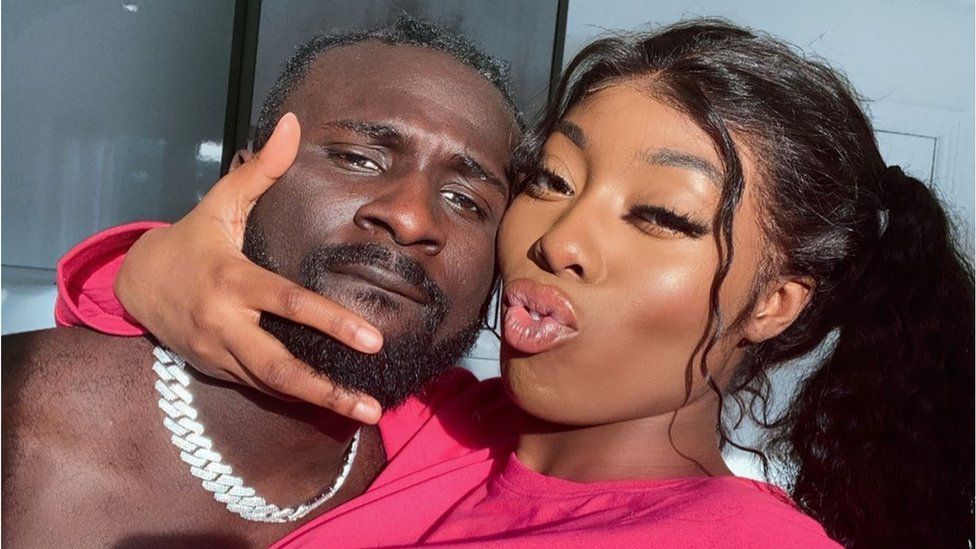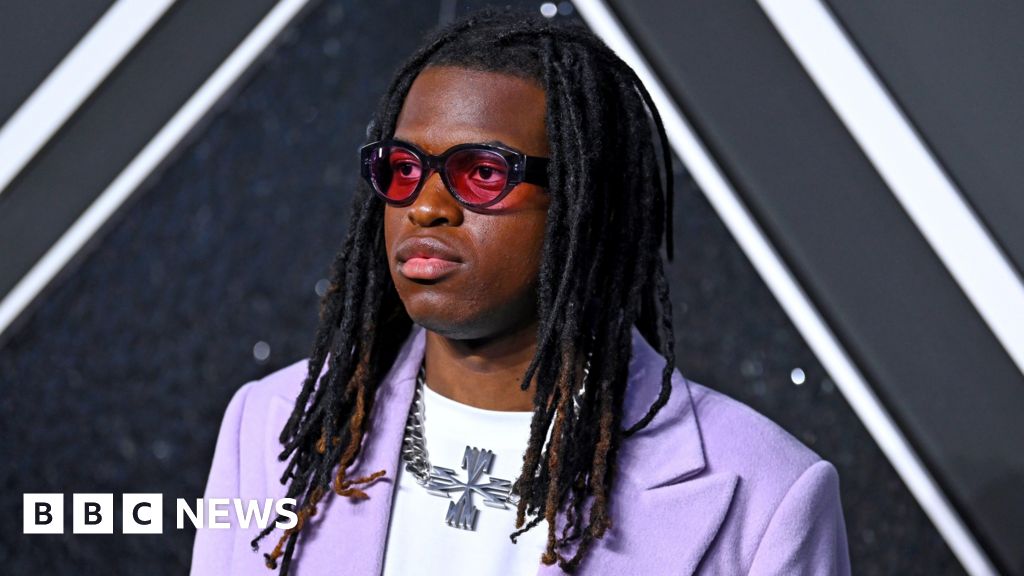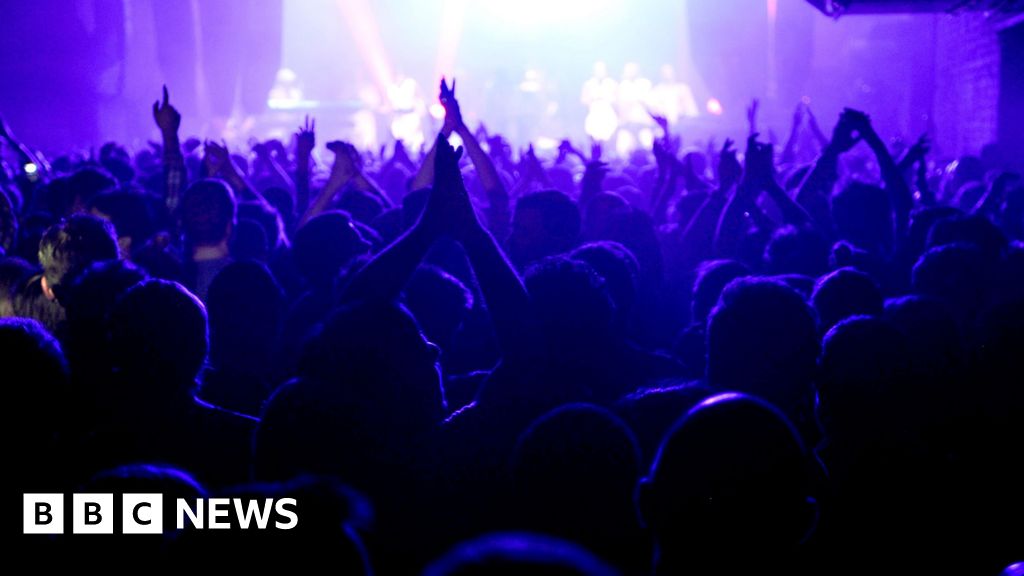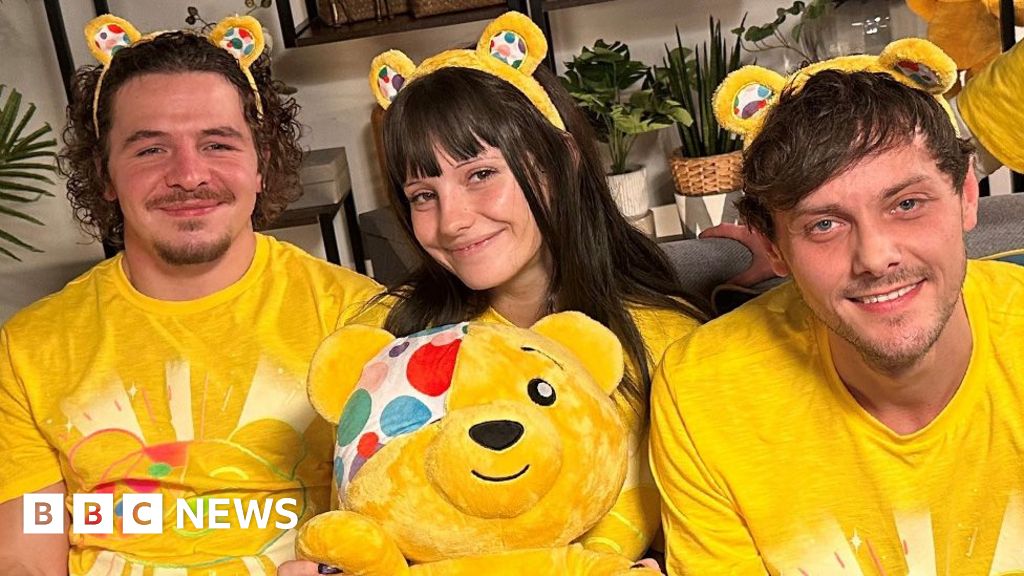ARTICLE AD BOX
 Image source, Nicole Thea Foundation
Image source, Nicole Thea Foundation
Global Boga and late wife Nicole Thea
By Kamilah McInnis
BBC Newsbeat
The birth of your first child is one of the biggest events of your life.
So to lose your child and wife at the same time could be considered one of the worst.
It's been three years since Afrobeats artist Global Boga's partner Nicole Thea, who was eight months pregnant, died.
A short time later their son, Reign, also passed away.
Nicole, a popular YouTuber who'd documented her pregnancy journey, suffered a cardiac arrest caused by an undiagnosed condition called hypertrophic cardiomyopathy (HCM).
She was just 24 years old.
Global, who was a member of group Ghana Boyz, says the "last three years have been hell" without her.
Image source, Nicole Thea Foundation
Image caption,Global Boga says establishing the foundation in his late wife's name has "put some soul in me again".
During her pregnancy, he'd appeared in Nicole's videos, dancing next to a pram and looking forward to taking their son to the park.
"Even though I was alive, I could see, I could feel, I could touch. I was not here," he says.
"Ever since she passed, I've been looking for something to do for her in her name to honour her, to keep her name alive."
The 26-year-old found that "something" when he moved to Ghana and set up the Nicole Thea Foundation.
Operating in the UK, Ghana and the US, Global says its aim is to "save mothers, improve lives, raise awareness of HCM and about the discrimination against women of colour."
Establishing the foundation "put some soul in me again", says Global.
What is HCM?
According to the NHS, HCM is thought to affect one in 500 people in the UK, with most people inheriting the disease from their parents.
Nicole's inquest last November concluded that she died of a cardiac arrest caused by the undiagnosed condition.
Since her death, Global says Nicole's father has also been diagnosed with HCM.
Symptoms can include chest pain, light headedness and fainting, heart palpitations and shortness of breath.
Launching earlier this year on what would have been Nicole's 28th birthday, Global says the foundation has donated more than 2,000 items to a clinic in Ghana that helps expectant mothers and newborn babies.
He says he has other projects lined up, such as connecting rural communities with motorcycle ambulances and plans to put up Ghana's first birth centre.
"I know there are hospitals [in Ghana] but if I put up a birth centre where it's only for you to deliver, it would really make sense," Global says.
"So, from the second trimester to the third trimester, you are in the hospital. You are OK and you are getting the best treatment you can."
Listen to If You Don't Know on BBC Sounds
Listen to the latest If You Don't Know podcast to hear our full interview with Global Boga as well as tips from Doctor Khadija Owusu on how we can all look after ourselves.
Global says the foundation also aims to "raise awareness about the discrimination against women of colour" in healthcare.
Nicole's family has questioned the care she received, and suggested that her concerns were not taken seriously by health professionals.
Before her death she'd uploaded videos about her shortness of breath, describing it as being the "worst thing about pregnancy".
"I'm always out of breath," she said.
"I could walk from here to the end of the room and feel like I'm dying."
Nicole's inquest concluded her death from the "sudden and unexpected" cardiac arrest was unavoidable, despite delays in getting an ambulance to her.
But her death sparked wider conversations about the care that black mums-to-be receive.
Figures show the risk of black women dying in pregnancy or childbirth is almost four times higher than white women in the UK.
And earlier this year, a Women and Equalities Committee report found "racism has played a key part in the complex reasons underlying the disparities".
Image source, Nicole Thea / YouTube
Image caption,Before she died, Nicole posted a YouTube video talking about the difficulties of her pregnancy
Despite the last three years being incredibly tough, Global says he's found comfort in knowing that Nicole has been guiding him throughout.
"The fact that you've lost someone doesn't mean they're gone forever. They are with you. It's what has got me through this whole grief, it's what is keeping me going."
"Now I'm saving mothers and improving lives in Nicole and my son's name.
"I'm OK now you could say."
Related Internet Links
The BBC is not responsible for the content of external sites.

 1 year ago
28
1 year ago
28








 English (US)
English (US)